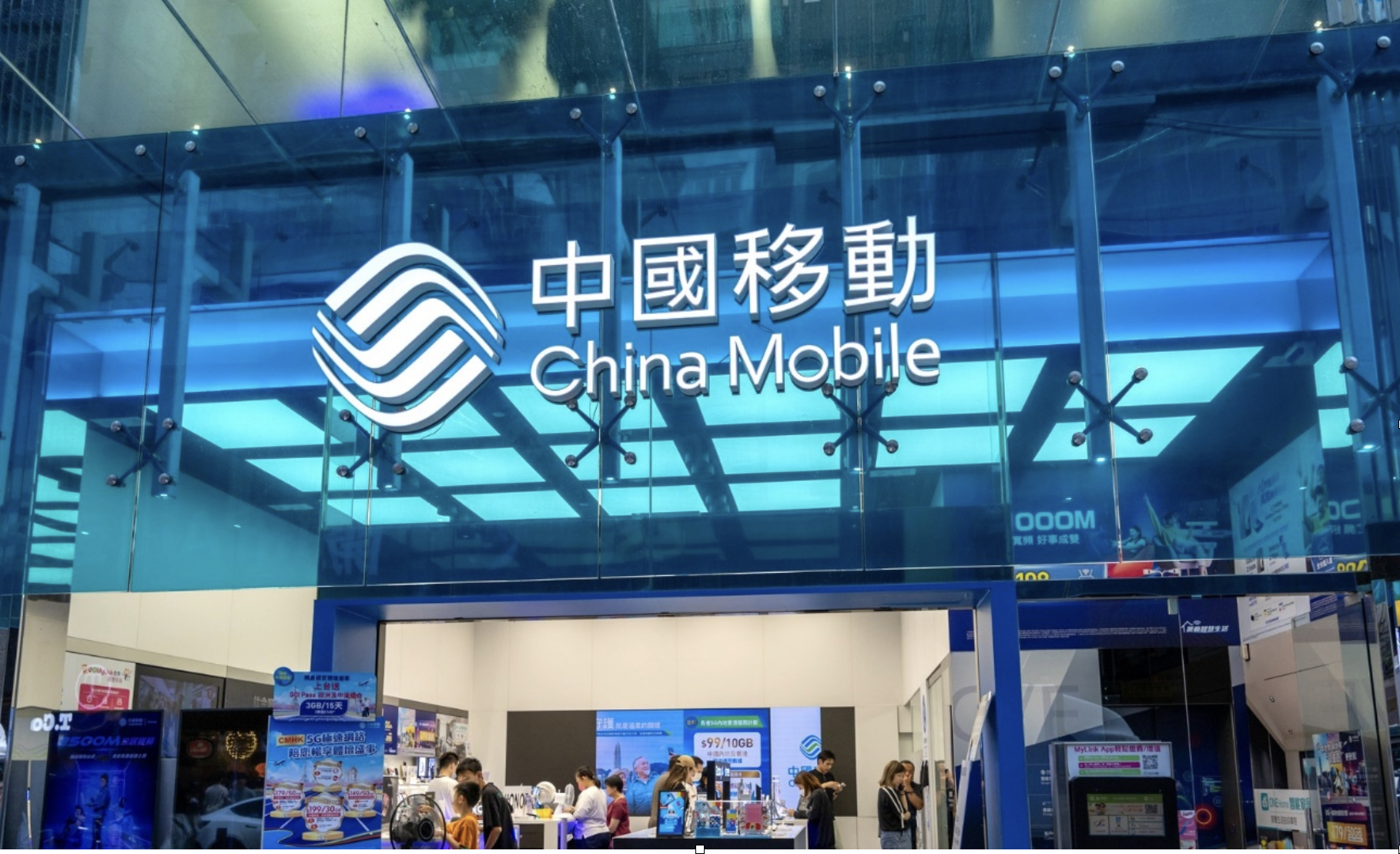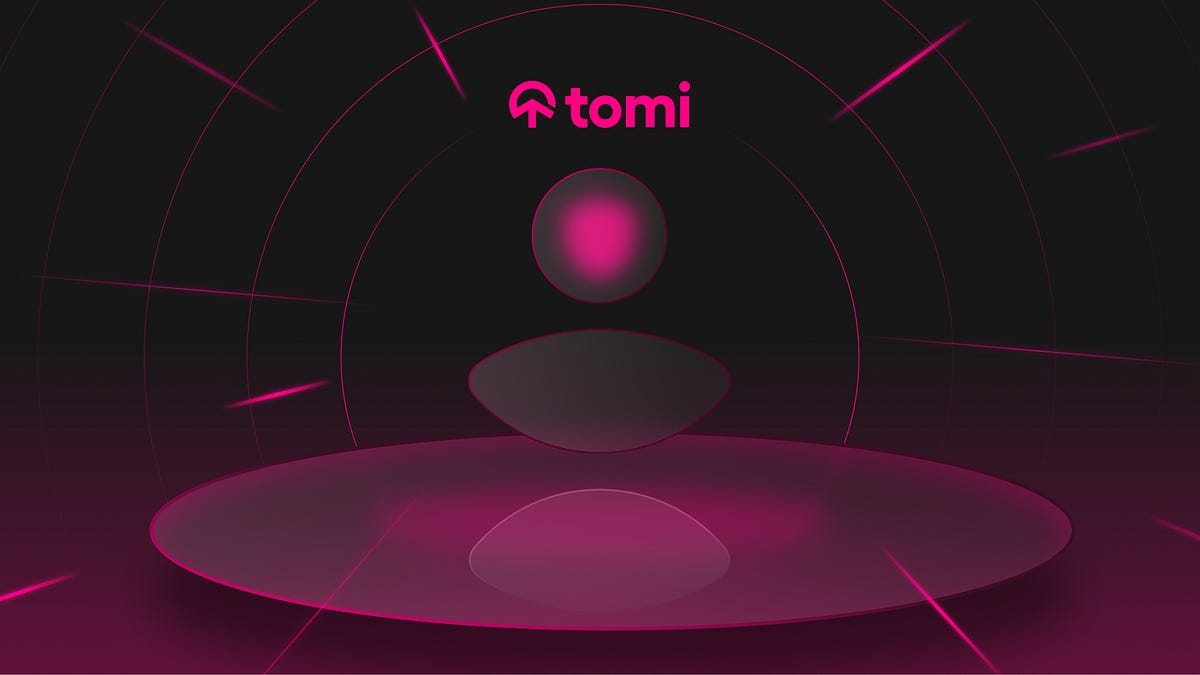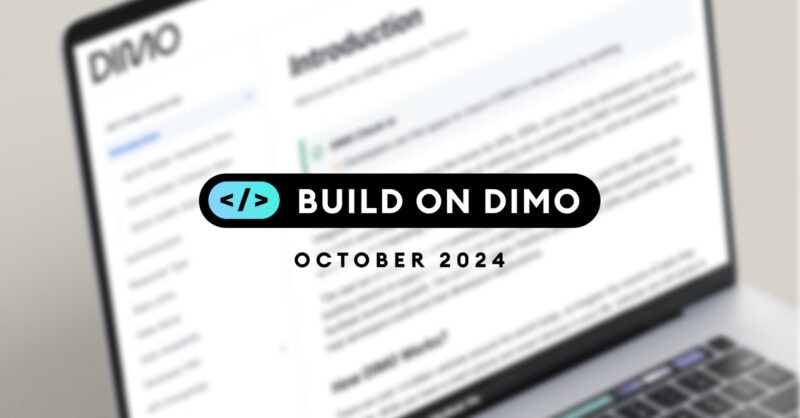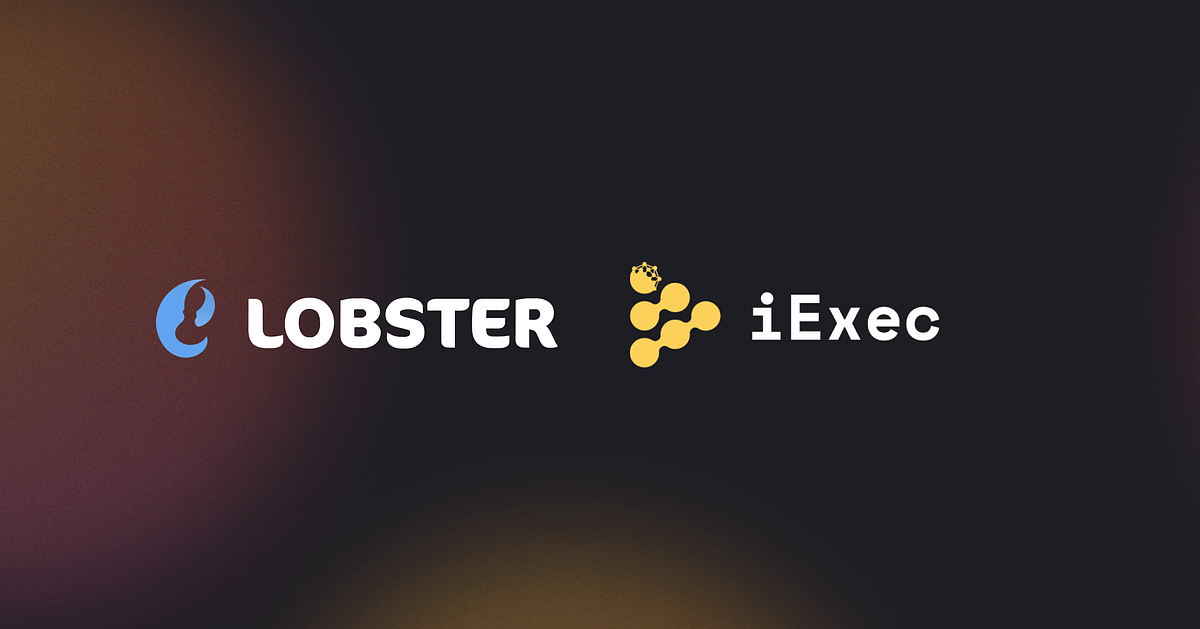Latest DePIN Product Launch News

8 months ago
China Mobile's Migu Partners with Phoenix for AI-Generated Content in Metaverse
China Mobile's digital content subsidiary, Migu, has announced a strategic partnership with Phoenix, a decentralized AI infrastructure platform, to enhance its applications in the metaverse and gaming through scalable AI-generated content (AIGC) infrastructure. As the largest wireless carrier in China, serving over 1 billion users, Migu caters to more than 900 million users across its diverse offerings, including video streaming, gaming, and music apps. This collaboration aims to leverage AIGC capabilities to create innovative and immersive digital experiences, which have become a focal point for Migu in recent years.
The integration of AI-powered content into the metaverse and gaming sectors presents significant challenges, requiring a robust combination of AIGC models for images, 3D content, and videos, alongside a scalable AI compute infrastructure. Phoenix's DePIN-based elastic AI compute layer, known as SkyNet, along with its ready-to-use AIGC modules within Phoenix GenAI, provides a comprehensive solution for real-time AIGC capabilities. These include functionalities such as text-to-image generation, AI-to-3D conversions, and interactive non-player characters (NPCs) powered by large language model (LLM) chatbot technology.
Moreover, the open API platform as a service (PaaS) layer of Phoenix GenAI allows Migu's extensive app ecosystem to access and customize AI-generated content on a large scale, catering to its vast user base. One notable application of this partnership could be the creation of AI-generated NFTs within Migu's metaverse applications, showcasing the potential of AIGC in enhancing user engagement and experience. This collaboration marks a significant step forward in the integration of AI technologies within the digital content landscape, promising to reshape the future of interactive entertainment.

8 months ago
Decentralized Identity: Paving the Way for Web3 Adoption
The evolution from Web2 to Web3 represents a significant shift in how personal data and digital identities are managed. In the traditional Web2 framework, centralized organizations maintain control over user data, often leading to concerns about privacy and data ownership. With over 5.17 billion active social media accounts, the amount of information controlled by these entities is staggering. Web3 aims to disrupt this model by introducing decentralized identity (DID) systems, allowing individuals to regain control over their personal data and online identities. This decentralized approach ensures that users are the sole owners of their credentials, enabling them to verify their digital identities without relying on centralized authorities.
DID systems offer numerous advantages that can facilitate the adoption of Web3 technologies. Firstly, they empower users by granting them full control over their personal data, thereby eliminating the risk of unauthorized data sales by third-party companies. Additionally, DID simplifies the onboarding process for new users by allowing them to access various decentralized applications (dApps) using a single identity. This streamlined experience reduces barriers to entry and enhances user engagement with Web3 platforms. Moreover, the security features inherent in decentralized technologies provide robust protection against malicious attacks, ensuring that users' private identities remain secure.
As the demand for privacy and data ownership grows, the practical applications of DID become increasingly relevant. For instance, integrating DID into existing Web2 platforms can provide users with password-free logins and facilitate decentralized Know Your Customer (KYC) processes. However, challenges remain, including the need for scalable systems that are user-friendly for individuals unfamiliar with blockchain technology. By addressing these challenges and promoting the use of DID, the Web3 ecosystem can accelerate its adoption, ultimately leading to a digital landscape where users have greater control over their identities and personal data.

8 months ago
Emerging Blockchain Solutions: Qubetics Joins Established Giants
The blockchain domain is ever-evolving, with established giants and innovative newcomers competing to deliver scalable, secure, and efficient solutions. In this competitive space, networks like Monero, Bittensor, and Tezos have each carved unique positions, addressing specific challenges and enhancing blockchain utility. A fresh contender, the Qubetics $TICS, has recently entered the arena, offering an ambitious vision of interoperable and autonomous blockchain. Here’s a look at what sets these networks apart and why they could be poised for major growth.
Qubetics’ standout offerings include QubeQode IDE, a development environment with drag-and-drop capabilities that make creating blockchain apps easy, even for users with limited coding skills. This integrated development environment reflects Qubetics’ commitment to lowering barriers in blockchain development. The network also leverages AI-driven tools to streamline the coding and deployment process, allowing developers to build applications quickly and efficiently. In Phase 5 of its presale, Qubetics has raised over $1.4 million, with $TICS tokens priced at an attractive $0.015972. Over 140 million tokens have already been sold, and with prices rising 10% in the next phase, early investors have a narrow window to join this revolutionary project.
Each of these projects—Monero, Bittensor, Tezos, and Qubetics—addresses unique aspects of blockchain functionality. Monero remains a leader in privacy-focused transactions, Bittensor decentralizes AI development, and Tezos is a resilient, self-amending blockchain. However, Qubetics’ focus on blockchain development places it at the forefront of a new wave of blockchain solutions. As blockchain technology advances, these platforms collectively contribute to a future rich with possibilities for decentralized applications and digital assets. Qubetics, in particular, offers a rare chance for early investment with life-changing potential.

8 months ago
Bitcoin ETFs Near 1M BTC as Market Developments Unfold
In recent developments within the cryptocurrency market, Bitcoin Exchange-Traded Funds (ETFs) have reached a significant milestone, nearing 1 million BTC under management. This surge has seen BTC ETFs gain an impressive $188 million, while Ethereum ETFs have also seen a modest increase of $2 million. Meanwhile, Tesla's stock has soared, reflecting a growing interest in cryptocurrencies among traditional investors. Additionally, Microsoft is set to vote on a potential investment in Bitcoin, although the board has expressed opposition to the move, indicating a cautious approach towards crypto investments in corporate governance.
On the regulatory front, Pennsylvania has passed a bill aimed at protecting crypto rights, signaling a positive shift for the industry in the state. However, concerns have arisen as reports suggest that a US crypto wallet may have been exploited, highlighting the ongoing security challenges within the sector. In terms of innovation, Kraken is preparing to launch its own Ethereum Layer 2 solution, which could enhance transaction speeds and reduce costs for users. Furthermore, Toly has announced that AI will leverage crypto rails to manage various projects, showcasing the intersection of technology and finance.
In other notable news, Uniswap has launched a bridging service connecting nine different chains, facilitating smoother cross-chain transactions. Ankr has integrated the TON blockchain into its Web3 API, expanding its service offerings. Meanwhile, a Binance executive has departed from Nigeria, reflecting the challenges faced by crypto exchanges in navigating local regulations. Lastly, the city of Lugano has unveiled a statue of Satoshi Nakamoto, celebrating the legacy of the Bitcoin creator and the impact of cryptocurrencies on the global financial landscape.

8 months ago
The Rise of Decentralized Physical Infrastructure Networks (DePIN)
The concept of Decentralized Physical Infrastructure Networks (DePIN) has gained significant attention in 2024, although its roots trace back further. The term DePIN was popularized in late 2022 by Messari, which categorized various projects under this umbrella. Among the pioneering DePINs, Helium stands out with its extensive network of over 996,000 routers and a market cap exceeding $1 billion for its HNT token. Helium exemplifies the practical benefits of decentralization, providing localized 5G coverage that traditional telecom infrastructures often overlook. This shift towards decentralized solutions reflects a growing recognition of the value they bring beyond mere security and resistance to censorship.
As the DePIN landscape evolves, experts like Álvaro Gracia and Sean Carey are exploring new categorizations for these networks. They distinguish between 'bespoke' networks, which require specific hardware like Helium, and 'commodity' networks that can operate on everyday devices, such as smartphones. Projects like NATIX and Wingbits illustrate this trend, enabling users to earn tokens by contributing data through their devices. These innovations suggest that the potential for disruption in the DePIN space is vast, particularly as more individuals can participate without the need for specialized infrastructure.
Looking ahead, DePINs are poised to transform various sectors, including electric vehicle (EV) charging infrastructure. With EV adoption outpacing the establishment of public charging stations, decentralized solutions are emerging to connect EV owners with private chargers. Initiatives like PowerPod leverage token incentives to encourage participation, while Minima explores a model where tokens manage access rather than serve as payment. This approach could redefine how users interact with charging infrastructure, blending decentralized technology with traditional fiat payment systems, thus broadening the appeal and usability of DePINs in everyday life.

8 months ago
Exploring the Potential of OZO, Mil.k, and TOMI in the Blockchain Space
The blockchain landscape is rapidly evolving, with numerous projects vying for attention. Among these, OZO, Mil.k, and TOMI have emerged as notable contenders, each presenting unique propositions that could potentially lead to significant returns. This article delves into the core attributes of these three tokens, exploring their potential to achieve a remarkable 20X growth.
OZO, or Ozone Chain, is built on quantum-resistant technology, positioning it as a robust investment for the future. Analysts predict that as more users adopt OZO, demand will surge, driving up its price. Currently trading at $0.2304, OZO boasts a low volatility rate of 0.22%. With projections indicating a potential price increase of 227.98% over the next month, reaching approximately $0.766306, OZO is seen as a long-term investment, particularly for industries requiring high-security data solutions, such as healthcare and government.
On the other hand, Mil.k is revolutionizing the loyalty points landscape by providing a platform that connects various reward systems across service providers, particularly in the travel and lifestyle sectors. Priced at $0.2125, Mil.k aims to create a global marketplace for trading loyalty points, addressing the fragmentation issue prevalent in the industry. With expectations of a 20-30% increase in value over the next six months, Mil.k could see its price stabilize around $0.3561. Meanwhile, TOMI distinguishes itself through its decentralized approach, enhancing user privacy and content ownership. Currently valued at $0.03417, TOMI has the potential for a 20-40% growth as it expands its user base and partnerships. Each of these projects holds promise, with the potential to significantly impact the blockchain sector in the coming years.

8 months ago
Filecoin Expands Offerings with New Web Services to Target AI Market
Filecoin, a prominent player in the blockchain space, is set to make significant strides beyond its traditional focus on decentralized storage. The company is reportedly launching a new product called Filecoin Web Services, which aims to create a decentralized cloud marketplace. This strategic move, highlighted in a recent Messari report, positions Filecoin to delve into AI-centered products, thereby broadening its offerings and potentially enhancing the demand for its FIL cryptocurrency. The report indicates that this expansion will facilitate easier access to decentralized solutions for developers, aligning with current trends in AI and decentralized infrastructure within the blockchain ecosystem.
Despite the expansion, Filecoin's core service of decentralized storage continues to show robust utilization. In Q3 2024, storage utilization surged to 29.6%, a significant increase from just 4.1% in Q1 2023. This growth can be attributed to a rise in the number of large dataset clients, which now totals 518, each subscribing to over 1,000 TiB. However, the overall storage capacity has seen a decline, dropping from 13.8 billion EiB to 5.4 billion EiB during the same period. This dynamic suggests that while Filecoin is expanding its service offerings, it is also navigating challenges related to storage capacity.
In the broader cryptocurrency market, FIL has struggled to maintain bullish momentum, trading at $3.59 after a notable decline of 10.21% over the past week. This downturn has overshadowed recent gains, as investor interest has shifted towards other narratives, particularly those involving memecoins and AI. As Filecoin ventures into new growth segments, the long-term impact on its competitiveness and the demand for FIL remains to be seen. While the immediate outlook may be challenging, the expansion into AI and decentralized services could ultimately enhance Filecoin's attractiveness to investors in the future.

8 months ago
Platform Updates: App Optimizations and Community Engagement Events
This week marks significant advancements for the platform, particularly with the optimization of its apps aimed at enhancing performance and user experience. Key improvements include the resolution of OTP confirmation issues, which users can address by performing a hard refresh on their browsers. Additionally, the Key Management System (KMS) has been temporarily hidden to streamline the setup process, with further updates anticipated. A hotfix update has also been implemented to boost overall performance and stability, although the release of mobile apps has been delayed due to ongoing KMS issues, with a new launch expected in November.
In an exciting development, the platform has lifted beta access restrictions for zcn.fun, making it fully accessible to the public. This platform offers users the opportunity to explore blobber Annual Percentage Rates (APRs) and discover the most profitable blobbers available on the network. As part of its outreach efforts, the marketing ad campaign is set to launch this week, with advertisements appearing on popular platforms such as X, Reddit, and Google, aiming to increase visibility and user engagement.
Looking ahead, the community can look forward to two upcoming Ask Me Anything (AMA) sessions hosted by CEO Saswata Basu. The first will cater to the Züs community on October 31, 2024, at 9 AM PST, where Basu will discuss updates and answer questions. The second AMA will take place in the GOLDDIGGERS crypto community on November 1, 2024, at 4 PM UTC, featuring a $200 ZCN giveaway. These events are designed to foster community engagement and provide valuable insights into the platform's developments.

8 months ago
DIMO Network: Empowering Developers and Innovating the Automotive Industry
In the aftermath of the ETHOnline hackathon, the DIMO developer community is buzzing with excitement and innovation. Developers are actively engaging with the DIMO team, sharing ideas and proposals for continuous development on the platform. Notably, one developer is collaborating on a data insight layer that promises to enhance the experience for all developers, while another is working on a no-code solution for DIMO APIs. Additionally, many developers have applied for the DIMO Ignite Grants Program, seeking funding for their innovative business proposals. This vibrant developer activity underscores the core mission behind the DIMO Network: to foster a thriving ecosystem for developers.
As the DIMO team progresses with their developer roadmap, significant milestones are being achieved. The upcoming launch of the Global Accounts project, implemented as Accounts API, is a key highlight. This RESTful API service will facilitate the creation of DIMO accounts, allowing users to register a signer account and provision a smart contract wallet. With a focus on user security, the signer wallet is protected by Turnkey’s policy engine, ensuring that only the end user has control. Furthermore, the integration of a fiat-to-crypto on-ramp using Stripe will streamline transactions, making it easier for users to engage with the DIMO ecosystem.
The introduction of the DIMO Transactions SDK marks another major advancement, providing developers with the tools to execute on-chain transactions seamlessly. This SDK supports both React Native and web applications, enabling developers to send DIMO tokens, mint vehicles, and manage ownership permissions without switching between applications. By allowing applications to sponsor on-chain transactions, the DIMO Transactions SDK alleviates concerns about gas fees for end users. As the DIMO Engineering team continues to innovate and revolutionize the automotive industry, the community is encouraged to join the conversation and contribute to the development of this exciting network.

8 months ago
iExec and Lobster Revolutionize Web3 Communication with Privacy-First Innovation
The recent partnership between iExec and Lobster marks a significant advancement in Web3 communication, particularly in the realm of privacy. With the integration of iExec's Web3Mail, Lobster can now send encrypted emails to users without ever needing to store or even access their email addresses. This innovation utilizes confidential computing and blockchain technology to ensure secure communications while granting users complete control over their privacy. By leveraging Intel SGX hardware encryption, the collaboration has created a tamper-proof communication method that effectively protects users from data breaches and unsolicited spam.
This partnership not only enhances user privacy but also opens up new avenues for developers interested in creating privacy-first applications. iExec is actively encouraging builders to participate in their grants program, which aims to support innovative projects that align with their ecosystem. Interested developers can submit proposals detailing their project's technical aspects, purpose, and long-term benefits. Selected applicants will undergo a technical interview, and grants will be awarded based on the achievement of specific milestones, fostering a collaborative environment for innovation.
Looking ahead, the potential of this partnership is vast, and both iExec and Lobster are excited about the future of privacy-first technology. Users are invited to experience this new level of privacy by subscribing to Lobster's secure newsletter. Additionally, developers are encouraged to explore the opportunities available through iExec's grants program, as this collaboration is just the beginning of what can be achieved in the realm of secure communications and privacy-focused applications.
Signup for latest DePIN news and updates